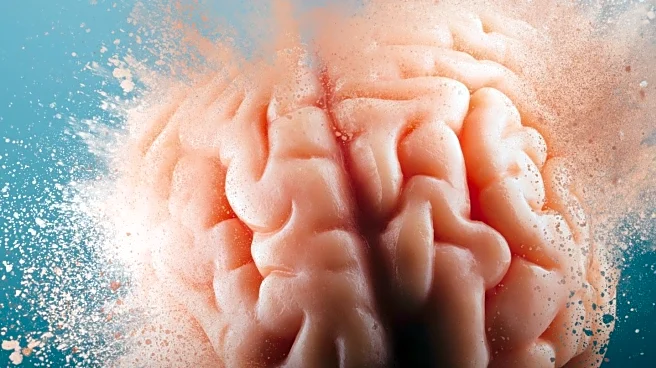What's Happening?
Research from the University of Southern California highlights the negative impact of witnessing violence on adolescent brain development. Exposure to violence affects the anterior cingulate cortex, leading to decreased gray-matter volume and associated issues like anxiety and depression. However, transcendent thinking, which involves reflecting on complex social issues, can help buffer these effects and promote brain resilience.
Why It's Important?
Understanding the impact of violence on brain development is crucial for developing effective interventions and support systems for young people. This research emphasizes the importance of fostering transcendent thinking, which can enhance cognitive resilience and emotional well-being. Educational institutions and communities can play a vital role in providing safe spaces for adolescents to engage in meaningful reflection and dialogue. The findings have implications for public policy and mental health practices, highlighting the need for comprehensive strategies to address the effects of violence.
What's Next?
Schools and colleges can integrate transcendent thinking into their curricula, encouraging students to explore diverse perspectives and engage with social issues. Community programs can offer intergenerational storytelling and civic reasoning activities to support adolescent development. As awareness of the impact of violence grows, there may be increased advocacy for policies that prioritize mental health and educational initiatives.









